第40章
NEXT we must go on to examine questions relating to Genus and Property. These are elements in the questions that relate to definitions, but dialecticians seldom address their inquiries to these by themselves. If, then, a genus be suggested for something that is, first take a look at all objects which belong to the same genus as the thing mentioned, and see whether the genus suggested is not predicated of one of them, as happens in the case of an accident: e.g. if 'good' be laid down to be the genus of 'pleasure', see whether some particular pleasure be not good: for, if so, clearly good' is not the genus of pleasure: for the genus is predicated of all the members of the same species. Secondly, see whether it be predicated not in the category of essence, but as an accident, as 'white' is predicated of 'snow', or 'self-moved' of the soul. For 'snow' is not a kind of 'white', and therefore 'white' is not the genus of snow, nor is the soul a kind of 'moving object': its motion is an accident of it, as it often is of an animal to walk or to be walking. Moreover, 'moving' does not seem to indicate the essence, but rather a state of doing or of having something done to it. Likewise, also, 'white': for it indicates not the essence of snow, but a certain quality of it.
So that neither of them is predicated in the category of 'essence'.
Especially you should take a look at the definition of Accident, and see whether it fits the genus mentioned, as (e.g.) is also the case in the instances just given. For it is possible for a thing to be and not to be self-moved, and likewise, also, for it to be and not to be white. So that neither of these attributes is the genus but an accident, since we were saying that an accident is an attribute which can belong to a thing and also not belong.
Moreover, see whether the genus and the species be not found in the same division, but the one be a substance while the other is a quality, or the one be a relative while the other is a quality, as (e.g.) 'slow' and 'swan' are each a substance, while 'white' is not a substance but a quality, so that 'white' is not the genus either of 'snow' or of 'swan'. Again, knowledge' is a relative, while 'good' and 'noble' are each a quality, so that good, or noble, is not the genus of knowledge. For the genera of relatives ought themselves also to be relatives, as is the case with 'double': for multiple', which is the genus of 'double', is itself also a relative. To speak generally, the genus ought to fall under the same division as the species: for if the species be a substance, so too should be the genus, and if the species be a quality, so too the genus should be a quality; e.g. if white be a quality, so too should colour be. Likewise, also, in other cases.
Again, see whether it be necessary or possible for the genus to partake of the object which has been placed in the genus. 'To partake' is defined as 'to admit the definition of that which is partaken.